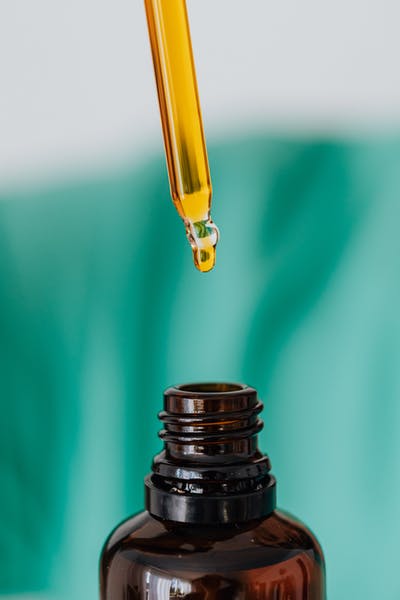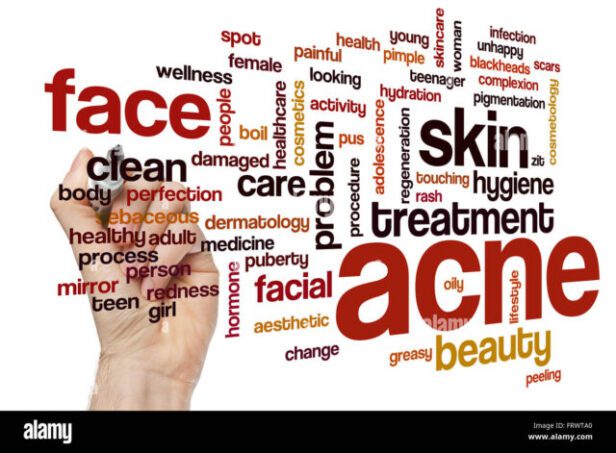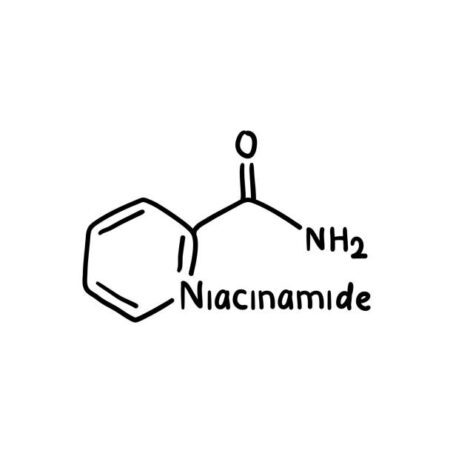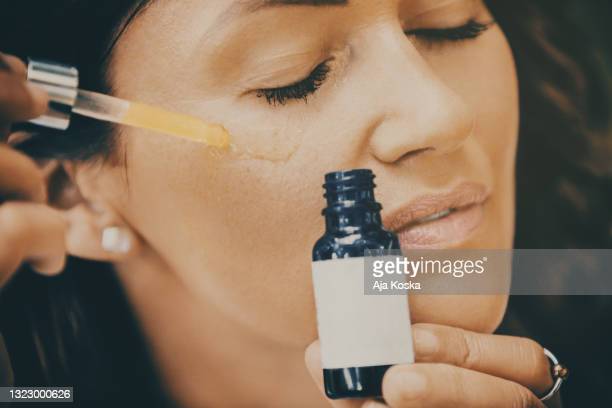We all know this is a holy grail in a lot of beauty products and using it on your face seems like a good idea but…what are face oils and what do face oils do for your skin? This article will help bring clarity to what face oils are and most importantly, it will explain exactly what face oils do to your skin. The face is made up of several layers of skin. One of those, the stratum corneum, acts like a protective barrier, holding in moisture and helping your skin to stay strong. Face oils help strengthen that layer, which can lead to visible improvement in your complexion.
Face oil is not mostly used as a treatment like a serum or a cream but rather a type of skin care product. The most popular face oils are made with an essential oil base that contains phytochemicals, antioxidants, and Essential Fatty Acids (EFA’s). EFAs are able to penetrate the epidermis easily and are useful in slowing down the skin’s aging process. Everyone asks the question “is face oil good for oily skin?” with mixed opinions. There are those that think that face oils are great for the skin, whilst others believe they can be quite damaging – so who is right? Before we dive right into it, let’s find out exactly what are face oils.

What are face oils?
Face oils are a combination of plant-derived oils and extracts designed to keep the skin’s natural moisture levels in balance. A favorite among beauty enthusiasts, face oils are gaining popularity among everyday users as they offer a simple and effective way of infusing hydration into the skin. This essential comes in handy when you need to soften and nourish the skin for a healthy-looking glow (i.e, every time!). Face oils can be just as good at treating aging skin as they are at hydrating it. They can also keep your pores clog-free and prevent unwanted blemishes.
Also important to note is that the outer layer of the skin naturally produces oils that moisturize and hydrate the skin. One of these oils is called sebum and is produced by tiny glands in the skin called sebaceous glands. Lipids (oils) also make up a significant portion of this barrier and are responsible for keeping the skin soft and supple by preventing water loss, as well as blocking environmental threats.
What does face oil do for your skin?
Sometimes, the oil-producing glands in your skin don’t work properly. They might produce too little sebum – resulting in dry skin – or too much sebum – resulting in oilier skin than normal. This is where Face oils come in.
–Face oils help to reduce wrinkles
Lots of facial oils are also brimming with antioxidants which ward off and neutralize free radicals. This is great for preventing premature aging, keeping wrinkles away, and maintaining the skin’s elasticity and plumpness. In addition, massaging the face oil into the skin can help stimulate blood circulation and cell generation
-They add moisture and nourish the skin
After you apply a moisturizer, it’s important to add oil to your skincare routine. Applying oil after applying a moisturizer helps your skin seal in all of the hydration properties so your skin can keep that added moisture longer.
-Protect the skin
The skin on the face, ears, neck, and chest are very sensitive to environmental changes, making these areas of your body more prone to sunburns, as well as skin cancer. This is because these areas of skin shed cells more rapidly than other parts of the body and need moisture to repair themselves. Fresh younger skin cells will rise to the surface to replace older cells when a face oil is frequently used. Also, too much-unprotected exposure to the sun causes free radicals that lead to wrinkles and sunspots.
-Prevent dryness
While anyone, even those with oily skin, can benefit from facial oil, it can be especially nourishing for dry skin. Whether you are experiencing dry skin because of the weather, or you always have dry skin, facial oil can help boost your moisturizer’s hydrating efforts.
Cold weather, hot weather, air conditioning, or indoor heat—all of these environmental factors can draw moisture right out of the skin. That’s why you need good face oil. It not only replaces moisture that’s already been lost but helps prevent future loss. Oils help keep skin hydrated by preventing the evaporation of water from the skin. The oils improve texture by smoothing out cracks and crevices. This results in smoother, plump, and youthful skin.
–Face Oils help to calm rashes
Many oils contain anti-inflammatory properties, helping to soothe irritated skin. The oils from the argan plant for example is ideal for reducing irritation, which sometimes follows the use of popular anti-aging products such as retinol or alpha hydroxy acids. Geranium oil also does a great job of reducing redness from rosacea.
-They help to shrink large pores
Cleansing oils such as macadamia, jojoba, and camellia can help to clean your pores and make them appear smaller and less noticeable. They work by expelling the old oil from your skin and infusing it with new oil.
-Help fight acne
Stick with me; this one is a little tricky. Moisturizing an already oily skin isn’t nearly as contradictory as it sounds, though. The skin is constantly sending messages to the glands to produce more oil when it is dry. If your skin isn’t hydrated, it’s more likely to overproduce oil to compensate—which can clog pores and cause breakouts. Moisturized skin doesn’t need to produce extra oil. Face oils help to strike a balance in the sebum level of the skin. This makes it neither too oily nor too dry. Don’t worry face oils will make your skin more oily. The right facial oil can help clear pores of excess sebum and reduce inflammation.
-Promotes a youthful glow
Over the years, your skin may begin to look dull and dry. This is common because your skin produces fewer natural oils as you age. If you’re dehydrated, not getting enough sleep, or not exfoliating enough, your skin may also look dull. If your skin is dry, consider using face oil. They provide a moisture boost, which can help to make skin look smooth and healthy. When used as a makeup alternative or enhancer, they can give you a glowing sheen without any shimmery or glittery finish. You can pour a little on the high points of your face and use your hands to softly rub it into your skin.
How do face oils work?
Oils work by keeping moisture in the skin and do this in two ways: by acting as emollients and occlusives. Emollients are moisturizers, which help protect and soften the skin. Occlusives serve a different purpose: They work by forming a barrier over the skin to prevent the evaporation of moisture. Occlusives strengthen the skin’s outermost layer, called the stratum corneum, which acts as a barrier to protect the skin from dehydration and invasion by harmful particles. The most important thing to note is that facial oils hold moisture in your skin and block out environmental aggressors that can dry it out. When used correctly, they can keep moisture in longer than other products.
So, oils don’t necessarily provide intense moisturization, but their ability to help your other moisturizers work more effectively and form a protective barrier against pollutants makes them an essential part of your skincare routine.
Best face oil for glowing skin
A smooth, even complexion is one of the hallmarks of a gorgeous face. Whether you have oily or dry skin, you want your skin to be as free from blemishes, spots, and shiny patches as possible. That’s why so many people turn to face oil to get their beautiful skin back. The problem is: there are so many oils to choose from, how do you know which one will work for your skin type? The first rule of thumb is to know your skin type and needs. This will take you in the right direction on what face oil to pick.
There are many options to choose from including :
-Avocado oil
-Tea tree oil
-Argan oil,
-Grapeseed oil,
-Marula oil and lots more.
The key is to recognize that not all face oils are the same. While some can nourish the skin, others can be potential irritants. For this reason, before you start a regimen, you should always check with your dermatologist. Also, when it comes to skincare, every skin type is different. So, before you order your next products, make sure they’re right for your skin type.
Face oils are often diluted with soothing ingredients and are considerably gentle on the skin, they can also be very potent. Be sure to follow the directions and use carrier oils when applying essential plant oils to your skin.
In conclusion, face oils have many potential uses, but they generally provide an extra layer of protection to keep your skin nourished and healthy. While they can help hydrate your skin, they also boost your anti-aging routine by fighting wrinkles and repairing past damage.
While applying your products, it is important to go from light-weight to heavy-weight. This way, large-molecule products won’t sit on the skin, preventing overlying ingredients from reaching the skin. While applying both a serum and a face oil, the serum should come before the face oil. This should be followed by sunscreen if this routine is done during the day.
If you have oily skin, do not worry about acne. Face oils can make your skin feel hydrated and moisturized and if you use the right face oil, it won’t cause acne. Seek out non-comedogenic oils which are specially formulated to avoid clogged pores.




